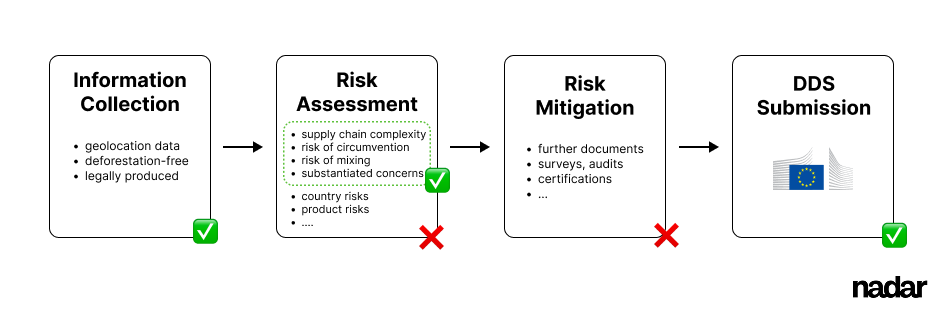Get a Demo
Sourcing from low-risk countries does not mean you are exempt from EUDR obligations - it only simplifies certain steps in the due diligence process.
The risk classification defines the extent of compliance checks of competent authorities:
🟢 1% for low-risk countries
🟠 3% for standard-risk countries
🔴 9% for high-risk countries
The Information requirements under Article 9 need to be fulfilled across all risk levels:
When sourcing from standard and/or high-risk countries, full EUDR due diligence, including risk assessment (Article 10) and risk mitigation (Article 11), is required.
Enhanced scrutiny from member state competent authorities can be expected for products sourced from high-risk countries.
When sourcing from low-risk countries, you need to assess if there is a risk regarding:

In case no risk is identified, further risk assessment and mitigation are not required.
However, if any information arises or substantiated concerns are made aware of that point to a risk of non-compliance with the regulation, full due diligence, including risk assessment and risk mitigation, is mandatory.

CEO
.svg)
Caroline is an experienced data scientist with a management degree from TU Munich and a degree in earth observation from the University of Würzburg, which is co-chaired by the German Aerospace Center (DLR). She has worked as a data scientist in the areas of nature conservation and land use change monitoring at WWF, the German Centre for Integrative Biodiversity Research (iDiv), and at tech companies such as Celonis and Deloitte.
